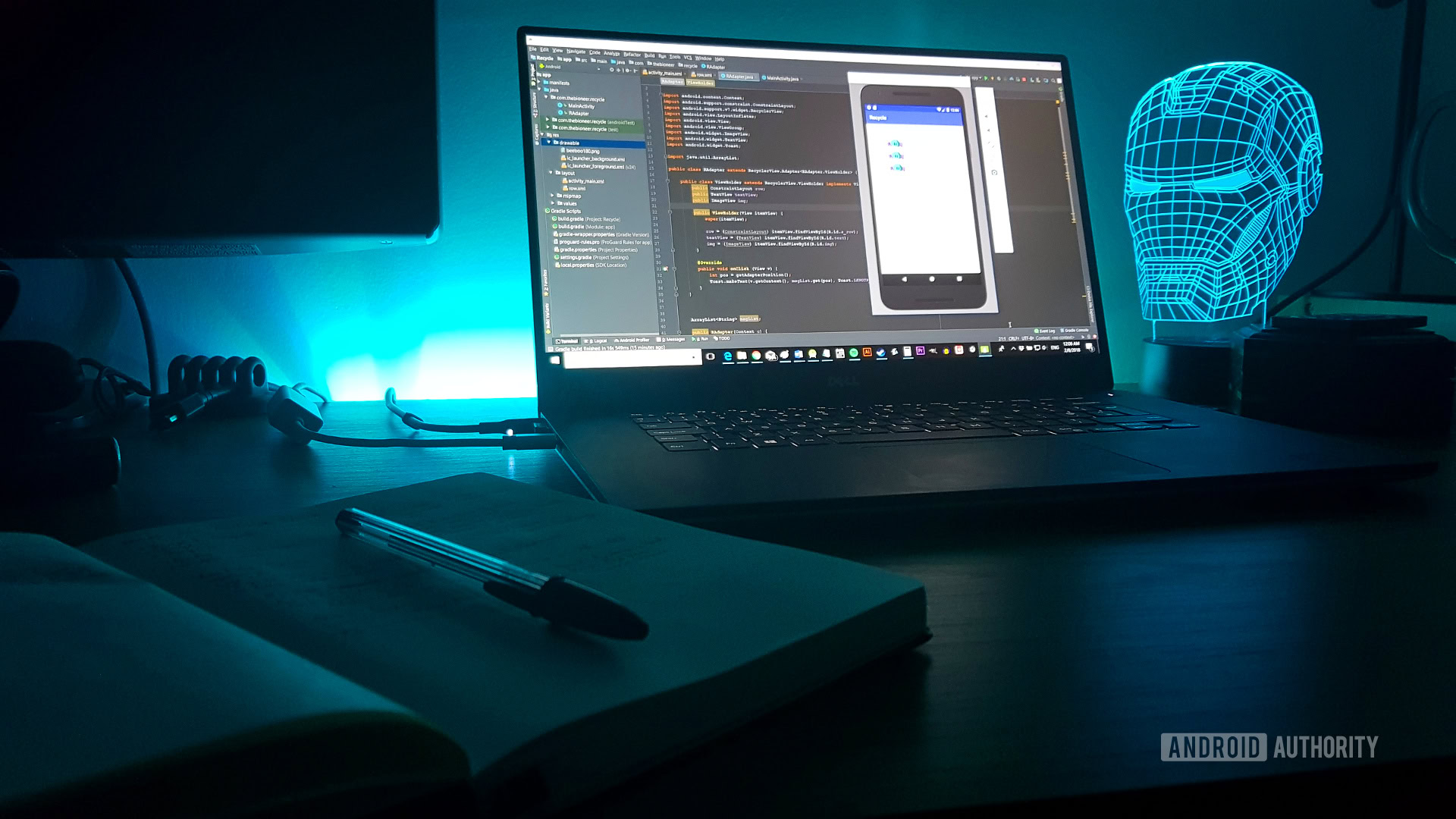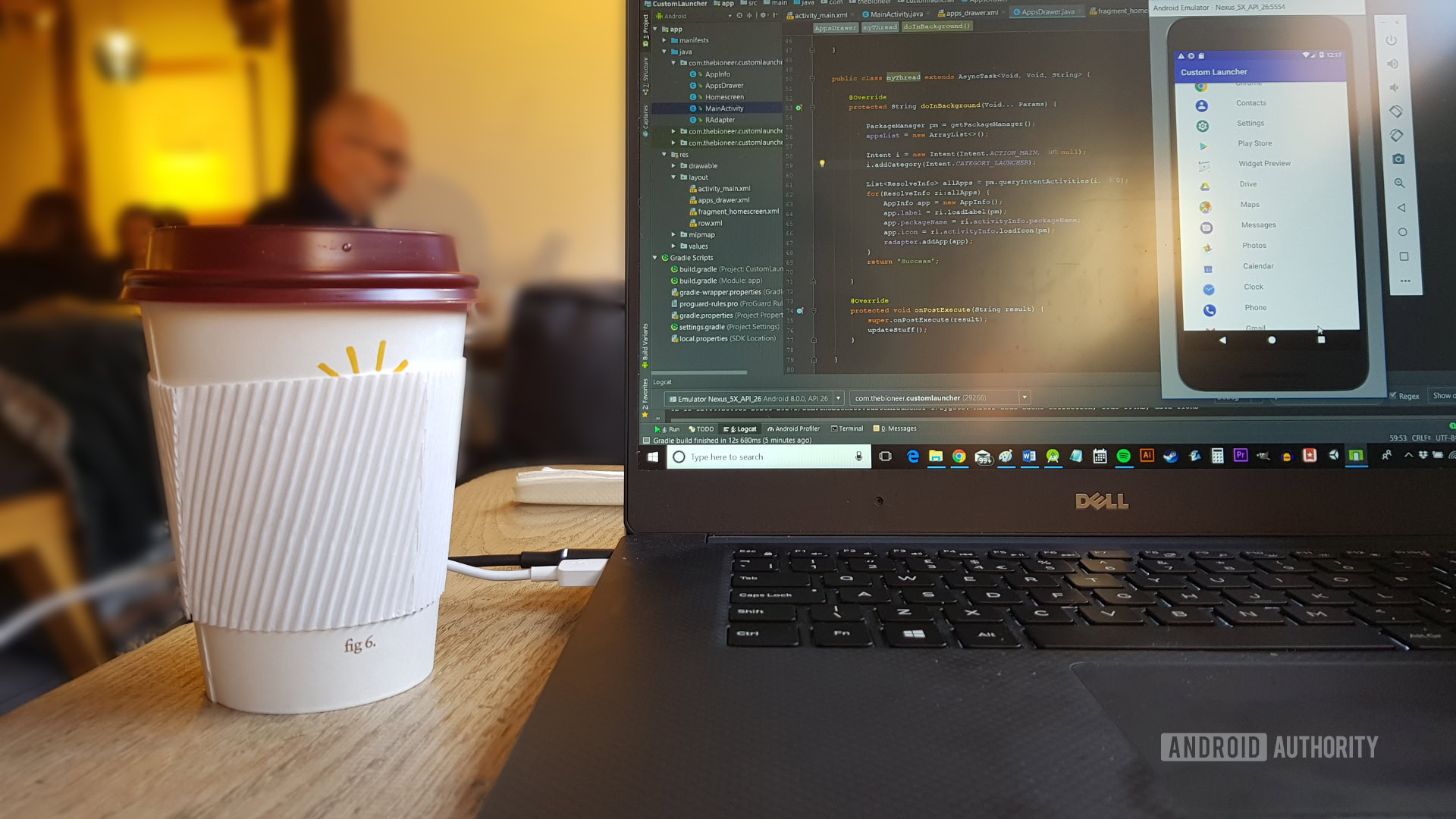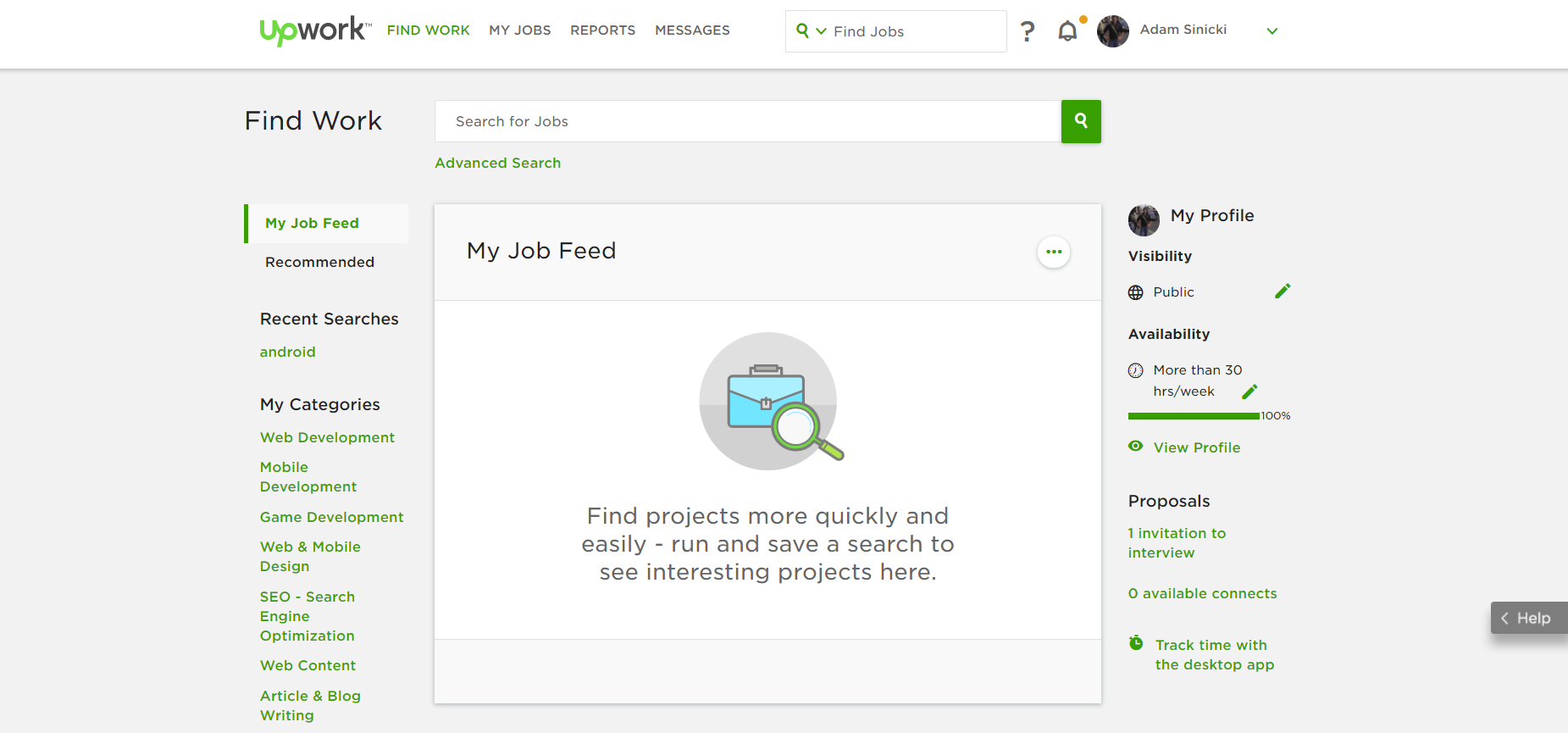Affiliate links on Android Authority may earn us a commission. Learn more.
How to find work as an Android developer

If you want to future-proof your employability, learning to program is one of the best things you can do. Since Android is the most popular operating system in the world, it’s probably a pretty good place to start. Finding work as an Android developer is not as impossible as you might expect at first, too.
If you want to future-proof your employability
There are plenty of ways to learn Android development. Once you’ve acquired the skills necessary to become an Android developer, how do you find work?
Where are the best places to look? How do you advertise yourself? What kind of work is available?
In this post, we’ll take a look at some of your options. Being a developer can open up some incredible new opportunities as you bravely venture as a pioneer into a new job market.
How to find Android developer jobs
Finding a permanent Android developer job is just like finding any other job. You can look for job listings and apply, fill your LinkedIn page with all of your experience and accomplishments. There are also some sites that list jobs specifically for coders, such as Stack Overflow. Make sure you check those out along with the usual culprits.
The thing to note here though, is that “Android development” is quite a specific niche, which will limit the number of companies looking to hire. The types of companies looking for an Android developer will generally be:
- Large organizations with an Android app they want to control in-house, with frequent updates and maintenance.
- Mobile game studios.
- Start-ups looking to launch a new app project (though these will sometimes offer a share in the business rather than a salary!).
- App design/web design companies that will provide work for the first category of client
The first of these categories is a relatively limited pool — most smaller businesses outsource this kind of work. If it’s an “ordering pizza” app, then it will hardly need daily maintenance and you could be left twiddling your thumbs. Working for an “agency” or app design company is sometimes easier (though it means you’ll only get a share of the profit).

For these reasons, it can be useful to supplement Android Studio and Java knowledge with other skills. If you can maintain a company’s app and its website, you’re likely to be of better use. You’ll probably be put to general “IT support” work too. Your boss — just like your Grandma — will probably think that being a programmer means being magically able to solve all computer problems. Learning HTML or at least familiarizing yourself with WordPress could be one good strategy to make yourself more appealing to employers.
Knowing how to build iOS apps using Swift/Objective-C is great, too. Another option is to learn a cross-platform solution like Xamarin, but that’s a much more specific skill and you may need to convince a company it’s worth having. A lot of companies will be looking to release apps on multiple platforms, so being able to satisfy that goal in some way is useful.
If you can maintain a company’s app and its website for instance, then you’re likely to be of better use
Of course, being able to use Kotlin is also likely to be increasingly important. For mobile game development, knowing how to use Unity or Unreal is a must.

The more familiarity you have with additional complementary skills and platforms the better. So experiment with things like Firebase, SQLite, JSON, the NDK, and more. Companies looking to bring someone on for a longterm project will often be looking for a very specific set of skills and experience. The more of those boxes you can tick, the less training they have to do!
Any additional skills and languages you learn will only add to your employability. That might mean completely unrelated subjects like Python or PHP. If you can show all of these skills and experience on a CV, then you’ll greatly increase your chances of landing a job.
Gaining experience

Another useful strategy is to gain experience to pad out your CV. This is where you run into that age-old issue of trying to get experience when nobody is willing to hire someone without experience. There are three very good ways around this problem:
- Build and release apps onto the PlayStore to create a portfolio you can show off — you may even get some offers directly from this.
- Try getting involved in an open-source community on GitHub – This is again a great way to show off something you’ve built, as well as your ability to use collaborative tools and work as part of a team (important for many kinds of jobs).
- Attend hackathons, meet-ups and conferences.
Better yet, try taking on smaller jobs and “gigs.” This way, you can get paid work, and pad out your CV and cover letters in the process. This is an avenue I recommend everyone consider. It may be the best way to find work as an Android developer and it also presents a lot of other opportunities.
The “gig economy”
If you have the option, looking for smaller development jobs can be a fantastic way to ease your way into a career as a developer. If you can find enough work and make a name for yourself, you may not even need to find a full-time job at all.

This will give you more flexibility over how and where you work. It gives you more control over the type of jobs you take on and a bigger slice of the pie when it comes to the profits, too.
Think about it: companies that want an app for their site but don’t need to spend money and desk-space on an in-house developer still need to get their work from somewhere. So where are they going to turn?
Sure, a company could search the local talent pool for contractors, but that’s rarely fruitful. It could hire an app development company, too. Or it could hire a much cheaper and more flexible individual with the precise skills they need online.
From your perspective, why work for a company that builds apps for other businesses and get paid a small wage, when you could do the job yourself and take home all of the profit? You can work from anywhere in the world, too — on a laptop on the beach if it suits you.

For many, that’s the best way to work as an Android developer.
Suddenly, having a specific set of skills becomes an asset. List yourself as an “Android Developer” and you will be far more directly appealing to a specific type of client and better suited to fulfilling a particular role. Likewise, you could list yourself as an Android Unity developer, or say you specialize in Xamarin for cross-platform development. Having a “niche” will make marketing yourself much easier and help you avoid direct competition with all the other full stack developers out there. It means you can build a portfolio of skills that specifically relate to the work you’re trying to find.
Because the audience is much larger and because you’re able to take on work from anywhere in the world, you’ll likely find its much easier to find short term work. Plus, the company is making a significantly smaller investment than it hired you full time. This in turn can then allow you to build your portfolio — to work on some really cool projects you can add to your CV. As you build yourself up, you can become a superstar coder and start charging more. What’s more, you may well find that what starts as a part-time gig, ends up becoming a full-time career.
As you build yourself up, you can become a 'superstar coder' and start charging more
You can also use this as a way to make money on the side of your main job. When you freelance, the options are endless!
How to find freelance work
If you’re interested in finding freelance work as an Android developer, there are a wide range of different options available.

The most obvious place to start would be on a freelancing platform. These are the most popular and well-known ones:
These sites let you create a profile and apply to job listings. Here, you’ll often be asked to take a short test in order to demonstrate your proficiency in certain areas (UpWork has an Android Programming Test, Java tests, and more). Once this is complete, you can fill in your previous work and the amount you want to charge per hour. In some cases, clients may approach you to offer work, but in others you will need to apply to jobs listings.

Of course, these services have downsides, too. All these sites take a commission for the work you do. UpWork in particular pushes the use of time-keeping software, which takes screenshots of your computer. I personally prefer to work on a per-job basis, and feel that if my browsing activity is being so closely monitored, I may as well not be freelance! If you complete the work, what does it matter how long it took or what you got up to in the meantime?
Suffice it to say most people will find that they naturally gravitate more toward certain platforms depending on how they prefer to work. This is very much a matter of personal preference.
Other Options
There are plenty more options for finding work as a freelance coder — several don’t involve giving away a slice of the pie and provide more flexibility or more exclusive opportunities.
You could offer some kind of programming service (converting a website into an app for instance) on Fiverr and charge a set price for it, “packaging” your work and more tightly controlling the type of jobs you receive.
Rent-a-Coder specifically targets programmers (that’s you!), while College Recruiter is aimed at college students looking to earn money on the side. TopTal is a kind of “elite” UpWork, which only accepts 3 percent of applicants and looks for only the most talented and decorated professionals.

You can also find work on LinkedIn (this brought up some cool opportunities for me), advertising your skills on your own website or blog, or even by approaching business owners directly with ideas for their apps. Forums and online communities can also be good places to advertise your skills. You can even advertise your skills on Gumtree! If you have a little business savvy, there are many opportunities to find work as an Android developer.
Why not combine this with other forms of passive income? Whether that’s selling an app on the Play Store or assets on Unity, there are lots of options and variables to play around with until you find the lifestyle that best suits you.
You have an incredibly sought-after skillset. It shouldn’t be hard for you to find work. It shouldn’t even be too hard to pick how you want to work and for how much!